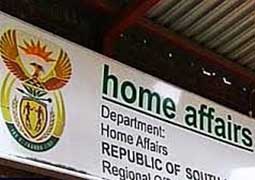
The draft protocol on the free movement of people between African countries is not a plan to open borders, but rather “a relaxation of visa requirements in a secure manner”, the Department of Home Affairs told a joint meeting of Parliament’s Portfolio Committee on Home Affairs and the Portfolio Committee on International Relations and Cooperation.
Mr Jackson McKay, the Deputy Director-General for Immigration at the Department of Home Affairs, assured Members of Parliament that the Draft Protocol to the Treaty Establishing the African Economic Community Relating to Free Movement of Persons, Right of Residence and Right of Establishment will not compromise the sovereignty and security of countries.
“It is about the relaxation of visa requirements in a secure manner. It will not just be carte blanche. When we negotiated the protocol, we made sure we protect the sovereignty of state and ensure that national security is not put at risk,” said Mr McKay.
He said free movement protocol does not mean open borders, but rather that citizens of different countries can enter other countries with fewer restrictions than currently. It also means that countries have common ways of dealing with Africans moving around the continent.
“The African Union Agenda 2063 underscores the importance of free movement of Africans in Africa for meaningful integration and increased trade. South Africa fully supports the vision of an Africa where its citizens can move freely across national borders, where intra-Africa trade encouraged and there is greater integration and development of the continent,” said Mr McKay.
Though South Africa fully supports the free movement of Africans across the continent, Mr McKay said, the government does not support an African passport. “Our concern is that there is no legal standing for its issuing. We need a legal instrument that brings it into existence and article 10 of the protocol not enough,” the Mr McKay told MPs.
Some MPs felt that before Africa considered opening of borders, the continent should put more effort in ending the wars in some parts of the continent and tightening control systems, as people could use the relaxed controls to flee worn-torn countries. Ms Deborah Raphuti, a Member of the Portfolio Committee in International Relations, said: “We need to tighten up own systems before we put some of these protocols in place and we have challenges with undocumented immigrants.”
Another committee member, Advocate Loyiso Mpumlwana, suggested that free movement of people in relation to visa requirements should be tested at regional level first, before opening the border in the whole continent. “I would advise that first [it is implemented in] local economic communities, like the Southern African Development Community and the Economic Community of West African States. Let’s do it gradually, not all at once,” said Adv Mpumlwana.
Sakhile Mokoena
28 November 2017

